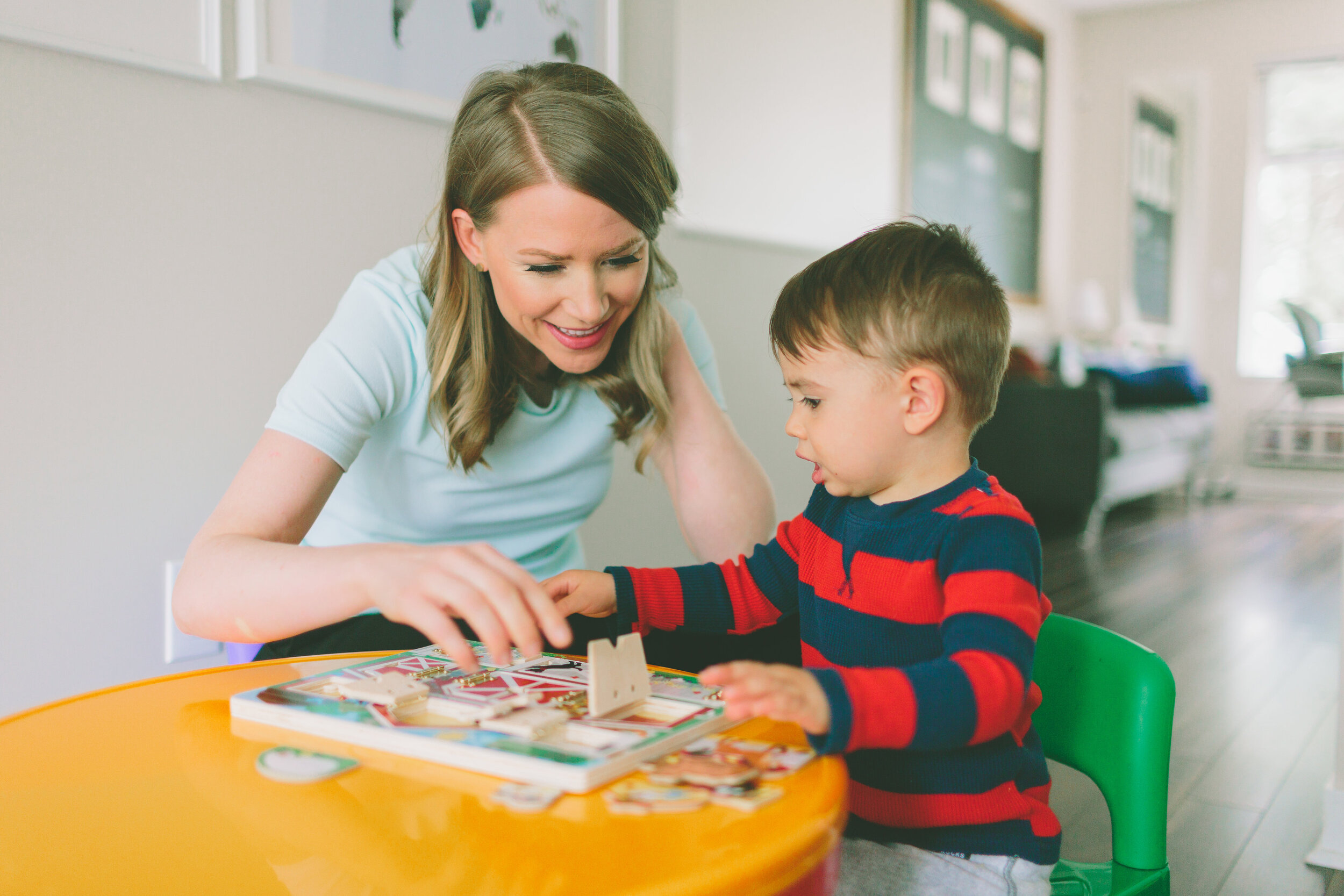3 Things To Know Before Your Toddler Starts Speech Therapy
Starting speech therapy with your toddler can feel overwhelming. There are sooo many unknowns!
We think many parents have an idea of what therapy might look like, but knowledge is power, right? So, we want to give you some insider information (the scoop, or really just a heads up!) on things you might have on your mind-- from someone who’s worked with hundreds of families of toddlers and preschoolers.
Here are three things you might want to know before your toddler starts speech therapy:
#1 Toddler Speech Therapy Is Goal-Oriented
Once your child has completed a speech and language assessment and therapy is recommended, your SLP will write specific goals for your child’s speech and/or language skills. And, you will very likely be a part of this process!
Knowing what your child’s goals are is very important for you, as the parent, because
A) You’ll want to know what you’re working towards in therapy; and
B) It will help you understand the process, and why you (or your SLP) is doing certain activities during your sessions.
Know that goals are totally individualized and different for each child. Honestly, this part just depends so much on who your child is and what they need from therapy. But, just to give you an idea, goals are often things like:
Increasing their vocabulary
Learning to pay attention to what others say
Following directions
Learning to make sounds correctly
Learning to speak in sentences
Learning play skills
These examples are written in very general terms, just to give you an idea of what to expect. But, the goals created for your child will be SMART goals. This means the goals will be:
Specific
Measurable
Achievable
Relevant (Parents have a big say in what’s most important for their family/child, and the SLP can help to make it realistic.)
Time (There will be a date range that you deem appropriate for the goal to be achieved within.)
If you live in the United States, these goals are documented in an Individualized Family Support Plan (IFSP) if your child is age 0-3 or an Individual Education Plan (IEP) for children ages 3+.
#2 Progress Can Take Time
Parents often ask their therapists how long their child will need therapy, but the truth is that it’s very hard to say. The time it takes for each child to “make progress” varies so much based on a number of factors. Some children only need only need a few months of therapy or periodic "check-ins" with the therapist, whereas some children with special needs may benefit from ongoing therapy.
Because there’s such a wide range because of factors affecting each child, it’s nearly impossible to give a definitive answer right away. But, once your child has been in therapy for a few sessions, your SLP may be able to give you more specific details. (Hang tight!)
#3 You’ll Learn New Strategies To Use With Your Child
During your child’s therapy session, expect that a big focus will be on teaching you strategies to use with your child at home.
A typical speech and language therapy session for a toddler only lasts around 45-60 minutes. So, if you think about it, the SLP is with your child for a very short time compared to ALL of the hours you spend with them in a day. This is exactly why we focus on teaching you, the parent, strategies that can easily be worked into your day.
And, if you’re thinking “ONLY 45-60 minutes?!” don’t worry! Your toddler won't be asked to sit down or have perfect behavior and attention the whole time. Much of the therapy is play-based. (We are talking about toddlers here!)
Your SLP Is On Your Team
We know starting therapy is nerve wracking and that you’re likely feeling all the things about it. But, trust me when I say your speech-language pathologist will do everything they can to make the transition into therapy a smooth one for you and your child.
We can tell you from experience that the most progress will be made when parents and SLPs work together!
Related: The Importance of Early Intervention
Be Proactive or Get a head start on speech therapy!
It’s hard to feeling like you’re not sure exactly how to help your child, and it can be so frustrating to have to wait until you get off the waitlist to receive strategies you can use at home!
We created our online course, TalkTodder, to give you the information and tools you need to help your child at home. Plus, you’ll have support from pediatric speech-language pathologist along the way. This will give you peace of mind and confidence to know you’re doing all you can for your child at home —before, between, or after therapy!




